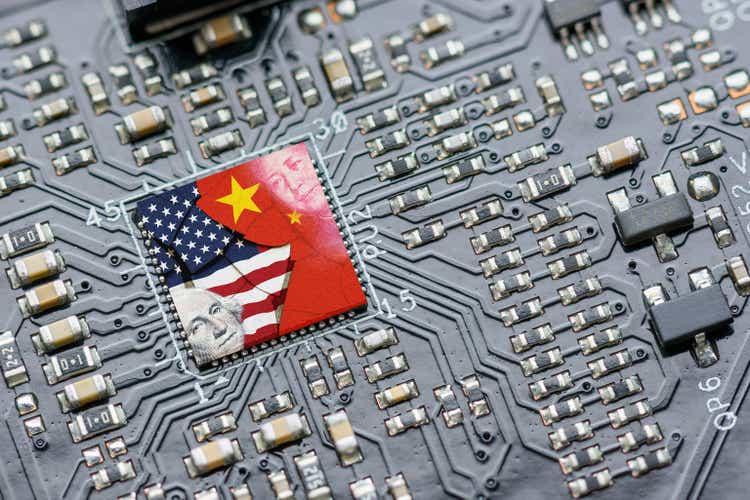


William_Potter
Chinese officials have asked the country’s tech firms to favor domestically produced artificial intelligence chips over foreign-made ones, The Information reported Monday, citing two people who work with the tech companies.
The move would impact U.S. chip darling Nvidia (NASDAQ:NVDA), which has developed China-focused chips, the H20, L20, and L2, to comply with U.S. export restrictions. The guidelines could also hurt the sales of server chips made by Intel (NASDAQ:INTC) and AMD (NASDAQ:AMD).
The chipmaker’s H20 stands out as the most powerful among the three and has been available for pre-orders in China since March.
The firms, including TikTok parent ByteDance, Tencent (OTCPK:TCEHY) (OTCPK:TCTZF), Alibaba (NYSE:BABA) and Baidu (NASDAQ:BIDU), have received the guidance verbally in recent months from the branches of the National Development and Reform Commissions and the Ministry of Industry and Information Technology, the report added.
Beijing has stepped up efforts to replace Western technology following planned curbs by the U.S. on the world’s second-largest economy. Chinese President Xi Jinping has stressed the requirement for self-reliance in technology to curtail the use of foreign tech.
According to the report, some Chinese firms have realized that the H20 can be deployed in large quantities to power AI as efficiently as Nvidia’s (NVDA) more advanced semiconductors.
Chinese companies have placed orders for at least 350,000 Nvidia H20 chips, worth about $4 billion, for delivery in 2024, down from $5 billion last year, the report said.
During its fourth-quarter earnings call, Nvidia (NVDA) finance chief Colette Kress revealed that the company’s data center revenue declined significantly following U.S. export controls imposed in October.
Nvidia’s (NVDA) sales to China decreased as a percentage of its total data center revenue from 19% in fiscal year 2023 to 14% in fiscal year 2024.